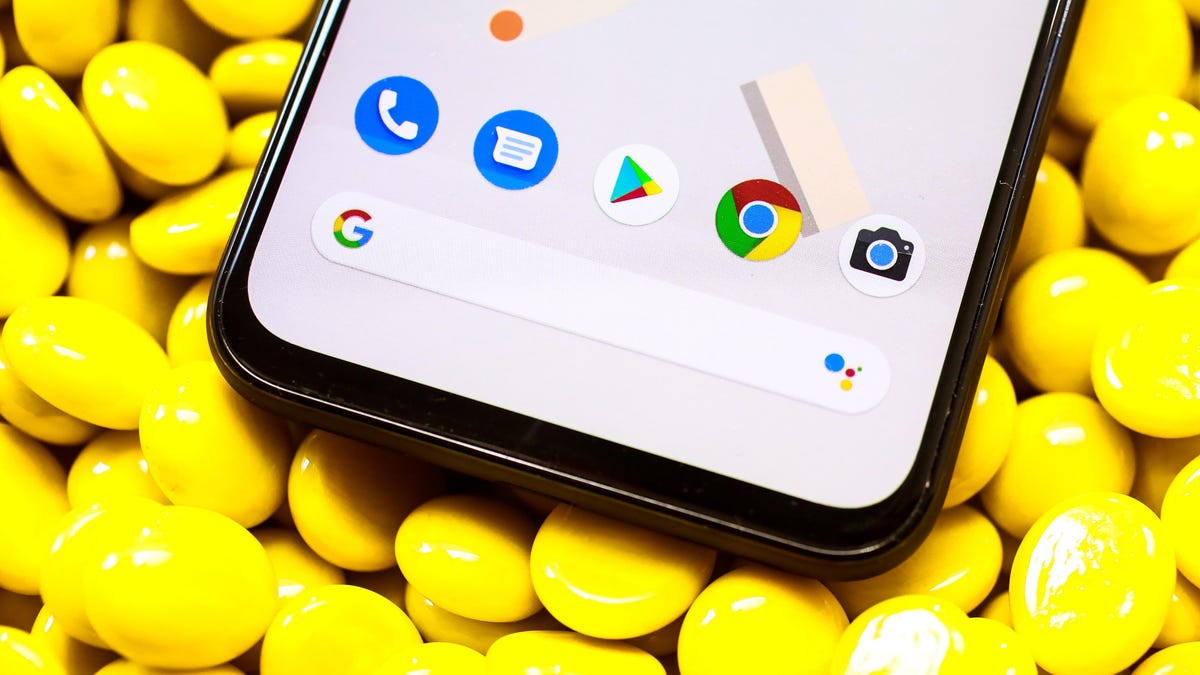Google's RCS messaging: Texting on Android phones is about to get a lot better
Android users will finally get basic features like read receipts and typing indicators.

Google is launching a big update to its Android Messages app.
Texting on Android phones is about to get a lot better, Google said Thursday. The maker of the widely used operating system is launching a major update to its Messages app in the US that will modernize texting on Android phones. The update will include several features that iPhone users have long enjoyed in iMessages, including read receipts and exiting group chats. RCS messaging is one of the biggest steps Google has taken with Android, which lags far behind Apple's iOS when it comes to texting. (Here's how the RCS texting app update compares to Apple's iMessages app.)
The much-anticipated update is made possible by the rollout of a technology called RCS, or Rich Communication Services. RCS is meant to replace SMS, or Short Message Service, a stalwart but tired protocol that's more than 25 years old.
The update will give you features including:
- Chat over Wi-Fi
- Sending and receiving high-resolution photos and videos
- Read receipts
- Typing indicators
- Group chat naming
- Adding and removing people from group chats
In an interview, Sanaz Ahari, director of product management for Google's communications services, acknowledged the update was long overdue, saying the SMS protocol currently used in the Android system lacks "lacks the features users expect from modern messaging."
"These are table stakes features," Ahari said. "It's a very important step in the right direction."
People can turn on RCS by opening up the Android Messages app and, when prompted, enabling the chat features. If another Android phone also has RCS enabled, text messages will automatically use the new protocol. Google is doing a slow rollout and only about 1% of Android phones will get the update Thursday. Most people in the US will get the new features "by the end of the year."
One feature that's notably missing is end-to-end encryption, which secures messages so only the sender and receiver can read them. It has become a privacy standard in messaging apps, including Apple's iMessage, WhatsApp and Facebook Messenger. Ahari said the company continues to study the issue.
"It's a fairly complicated topic," Ahari said when asked why end-to-end encryption isn't included. She said there are "technical complexities," as well as legal and policy implications. Google also has to think about its ecosystem of partners, which includes wireless carriers, phone makers and third parties. She said Google doesn't read messages or use them for personalized ad-targeting.
With RCS, messages will flow through Google's servers, said Drew Rowny, Google's product lead for Messages. That means Google would have to comply with law enforcement requests if, say, it was issued a subpoena. But Rowny said Google deletes messages from its servers as soon as they're sent, so it's less likely it would have the data to hand over.
'We need to get our own house in order'
The RCS announcement has been a long time coming. The company has been working on the initiative since 2016. Google introduced RCS in the UK and France in July. Rolling out the product hasn't been as simple as just building and releasing it like any other Google service. Because of Android's labyrinthine ecosystem, the company has to navigate a tangled web of carrier and device partners.
Texting on Android will include things like typing indicators and read receipts.
Still, Google is taking charge of the RCS rollout instead of relying on the carriers to do it -- an unusual step for a company so dependent on its ecosystem of partners. The search giant took the same route when rolling out RCS in the UK and France. Ahari said Google has been in "close contact" with the carriers, and stressed that they all broadly want messaging to be powered by RCS. Last month, the four major US carriers -- Verizon, AT&T, T-Mobile and Sprint -- teamed up to form the Cross Carrier Messaging Initiative, a joint venture aimed at standardizing RCS.
Google wielding its power to take charge of the RCS rollout could worry regulators already scrutinizing the company's market dominance. The tech giant is facing multiple antitrust investigations in the US. In Europe, Google was fined Google $5 billion last year for anticompetitive practices regarding Android.
While Thursday's launch is focused on the US, it's a crucial move for Android as a whole, which accounts for almost nine of every 10 smartphones shipped. The strength of Android's services is also important to Google's overall business because the operating system serves as a gateway to the company's other services, like search and maps.
The RCS update is also critical when it comes to Google's rivalry with Apple. iPhone users often deride Android's texting deficiencies. They also mock the green bubble used to indicate Android users on iMessage. The difference in platforms often causes glitches in group texts.
While the RCS launch is a big step, it isn't the "end-all, be-all," Ahari said. It won't make a difference in Apple-Android interactions unless Apple supports it on iPhones. Google would love that, though it's unlikely Apple would give up the status barrier, which legitimately keeps some people from switching to Android. (Apple didn't respond to a request for comment.)
The launch is about getting texting on Android up to par rather than solving the issue of the "green bubble problem," Ahari said. "We need to get our own house in order."
Originally published earlier today.

